Killer Whales Attacking Boats
Okay, so you might have seen the media frenzy about boats getting attacked by killer whales off the coast of Portugal and Spain and along the Strait of Gibraltar. It’s a favourite question from children when George showcases the boat, especially to schools and clubs.
So, should Team Oar Blimey be worried?
…after all, as soon as they set off from Sagres, George and Russ will row across this exact patch of water where all this commotion is occurring…
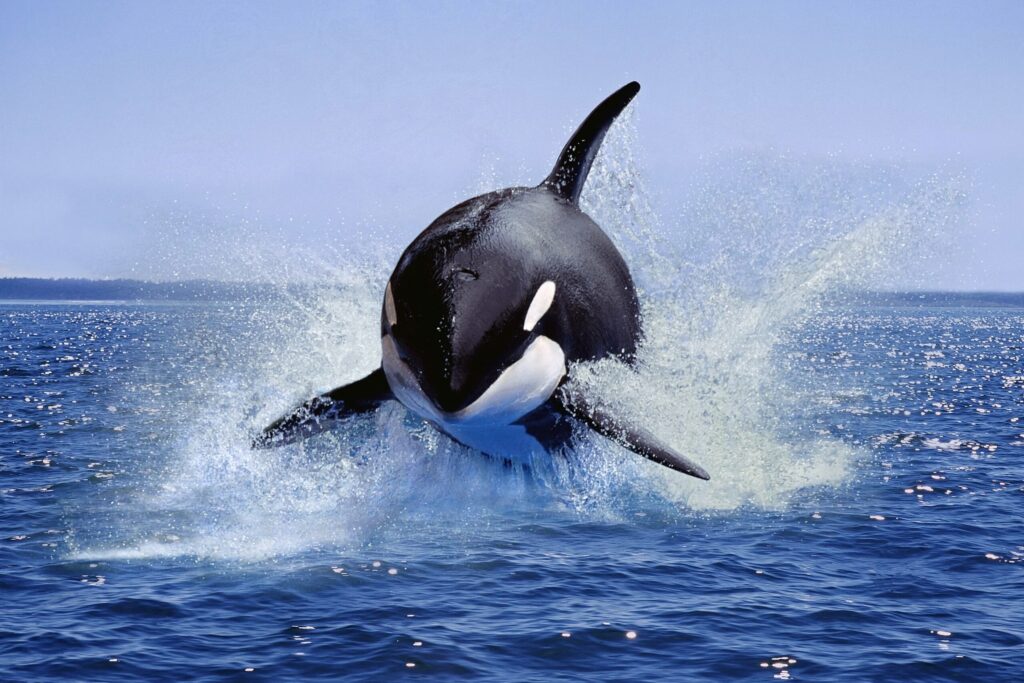
One for the experts...
To better understand the behaviour of the killer whale and agree a plan of action for any encounters with them, George met with the whale conservation charity ‘ORCA’ to find out why these ‘top of the food chain’ mammals are making all the headlines.
ORCA is a charitable organisation that works tirelessly to protect whales, dolphins and porpoises throughout UK and European waters. Saffron Roberts, an Ocean Conservationist at ORCA has studied our oceans and these magnificent creatures and is well equipped to give Oar Blimey some good advice.
George spent a few hours at sea off the coast of Portugal and Gibraltar with Saffron looking out for whales and dolphins and discussing their behaviours. Regrettably on this trip, there were no sightings and fortunately nor were there any further reports of boats getting attacked.
Saffron said, ‘Whales don’t attack boats’. She explained the behaviour is not fully understood and there’s several potential theories, but the most likely one is the orcas are playing and teaching their young (calves) to play and have fun.
‘Orcas are commonly known as killer whales but they are part of the dolphin family and have never been aggressive towards humans in the wild’.
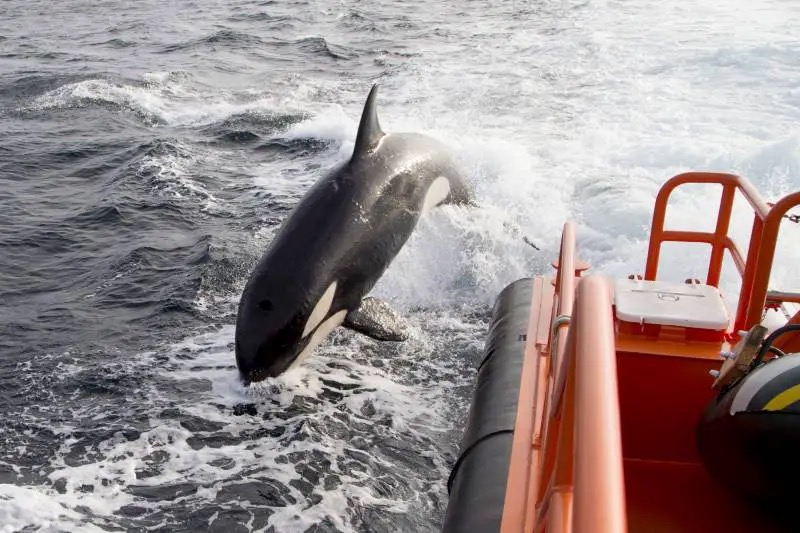

Reports of orcas diving under boats or slamming into them and causing them to sink are abundant and very much glorified, but Saffron said “these instances are extremely rare.” Orca’s touch, push and even pivot boats, and what may feel like ramming could just be the orca moving the boat or rudder with their head and body. “If they wanted to wreck the boat, they could do this within minutes.” What appears to be happening is, the orca’s push the rudders with their noses until they break, rather than biting the rudders.
“The most frequent encounters with orca’s happen in and around the Strait of Gibraltar, along the coasts of Portugal, Spain and Gibraltar, which follow the orcas’ migratory routes,” said Saffron. This is the exact location where George and Russ will be starting from.
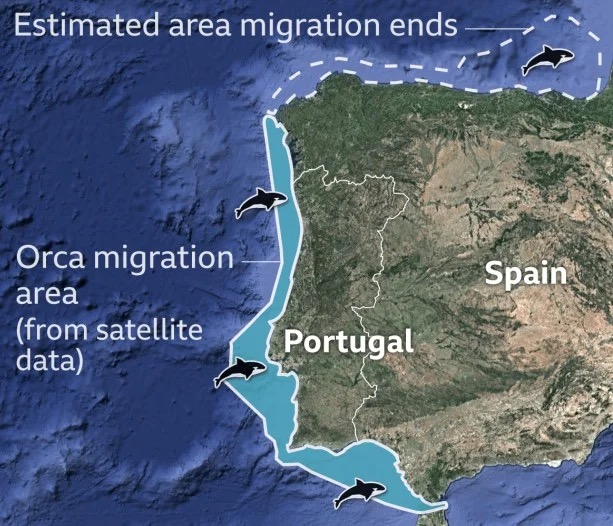
Unfortunately, there doesn’t seem to be an easy way of preventing the interactions. ORCA recommends avoiding the orcas by checking regularly updated maps of their movements to avoid the areas where the orcas are. Sailors have tried scaring them away by banging things, however, this hasn’t been at all effective as the orcas have stayed for around 45 minutes until they break the rudder and then, they seem to leave.
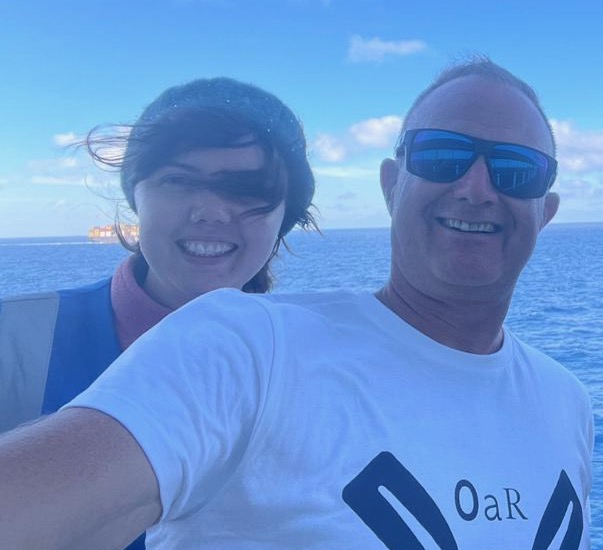
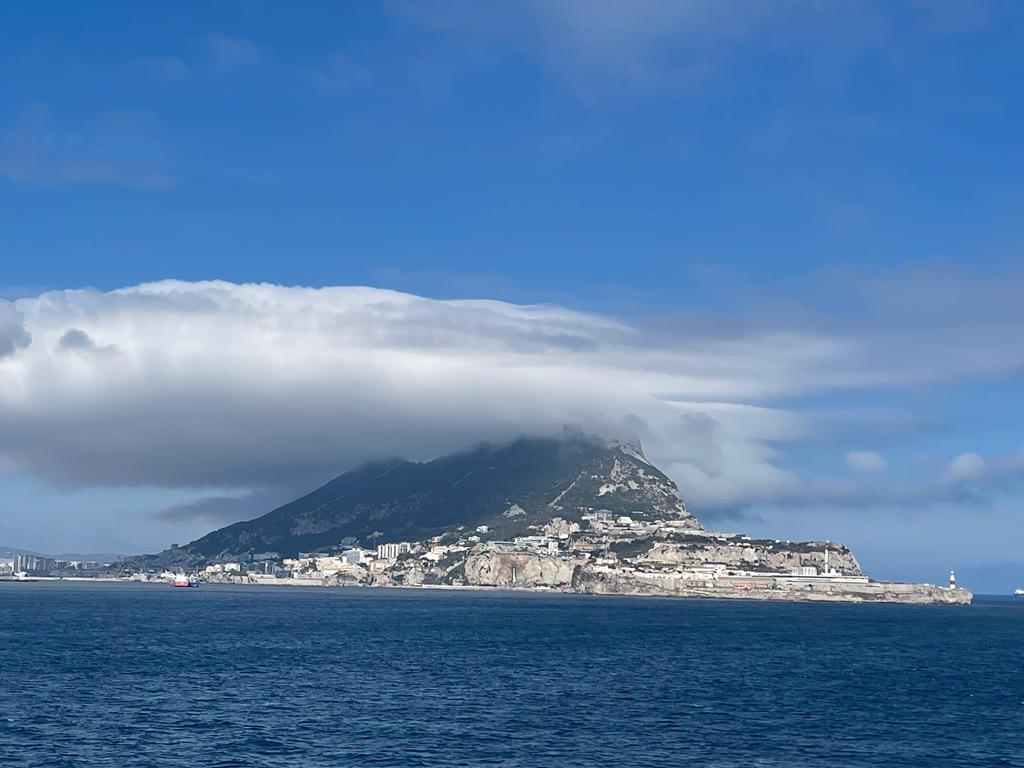
Can team Oar Blimey row away from orcas?
Well…orca’s generally swim at speeds of about 10 knots, and can reach speeds of up to 29 knots, so George and Russ won’t be able to out row them…Flat out…the boys can only row at about 5 knots!
George says, “There’s been no reports of whales playing with rowing boats” but recognises “this could be simply down to fewer numbers of rowing boats than sailing boats.” He says, “the solution lies with being able to retract the keel and rudder should an orca encounter occur, so we’ve got a plan in place and we’ve also got a spare rudder…just in case!”.
Russ isn’t too concerned about an orca encounter; he’s bought a new camera and would “capture the moment and share it with the world” if Oar Blimey was the first ocean rowing boat to have a close encounter with a pod of orcas.
As part of Oar Blimey’s commitment to safeguarding marine wildlife, the boys will also be monitoring whale and dolphin sightings and reporting back to Saffron and the ORCA team with their findings.

Partner with us, sponsor us or simply donate – every bit of your help and support is extremely welcome and will help Oar Blimey complete the Atlantic Challenge and raise funds to help people live with dementia.




